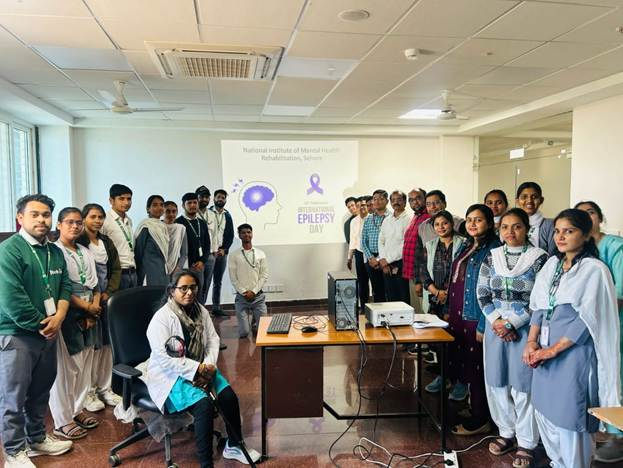Nationwide Awareness Programmes Mark World Epilepsy Day, Promoting Inclusion and Understanding
According to the World Health Organization (WHO), epilepsy affects approximately 50 million people globally, with 80% residing in low- and middle-income countries.

- Country:
- India
On the occasion of World Epilepsy Day, the Department of Empowerment of Persons with Disabilities (DEPwD), under the Union Ministry of Social Justice and Empowerment, spearheaded a series of awareness programmes across India. These initiatives were designed to debunk myths surrounding epilepsy, promote effective management strategies, and enhance public knowledge about available treatment options. Key Initiatives and Programmes:
National Institute for Empowerment of Persons with Intellectual Disabilities (NIEPID): NIEPID organized a specialized awareness programme dedicated to epilepsy management and treatment. Medical experts and professionals provided critical information to individuals with epilepsy and their families, emphasizing the importance of timely medical intervention and ensuring better access to healthcare and support services.
National Institute for Empowerment of Multiple Disabilities (NIEPMD): NIEPMD hosted an online webinar that featured leading healthcare professionals who discussed the various impacts of epilepsy on daily life. The webinar also offered strategies for effective epilepsy management, catering to both individuals with epilepsy and caregivers.
Composite Regional Centre (CRC), Gorakhpur: CRC Gorakhpur conducted an extensive awareness programme focusing on the causes, symptoms, and management of epilepsy. The event aimed to educate the local community about the condition while highlighting the significance of early diagnosis and continuous treatment.
Additional Awareness Campaigns: Several other National Institutes and CRCs, including those in Nellore, Davangere, Jaipur, and Guwahati, launched targeted awareness campaigns. These programmes emphasized the rights of individuals living with epilepsy, advocated for social inclusion, and aimed to improve their overall quality of life. Educational sessions, community outreach, and interactive workshops were key components of these initiatives.
Global Perspective and Impact:
According to the World Health Organization (WHO), epilepsy affects approximately 50 million people globally, with 80% residing in low- and middle-income countries. Research indicates that nearly 70% of epilepsy cases can be effectively managed with accurate diagnosis and timely treatment, enabling individuals to live seizure-free lives.
DEPwD's Commitment to Inclusivity:
Through these initiatives, DEPwD aims to eradicate the widespread misconceptions surrounding epilepsy, foster empathy and understanding within communities, and promote a society where individuals with epilepsy receive the necessary support, care, and opportunities for social integration. The department's continued efforts underline its commitment to building an inclusive and informed society, where every individual, regardless of their medical condition, can lead a fulfilling and dignified life.
- READ MORE ON:
- World Epilepsy Day








